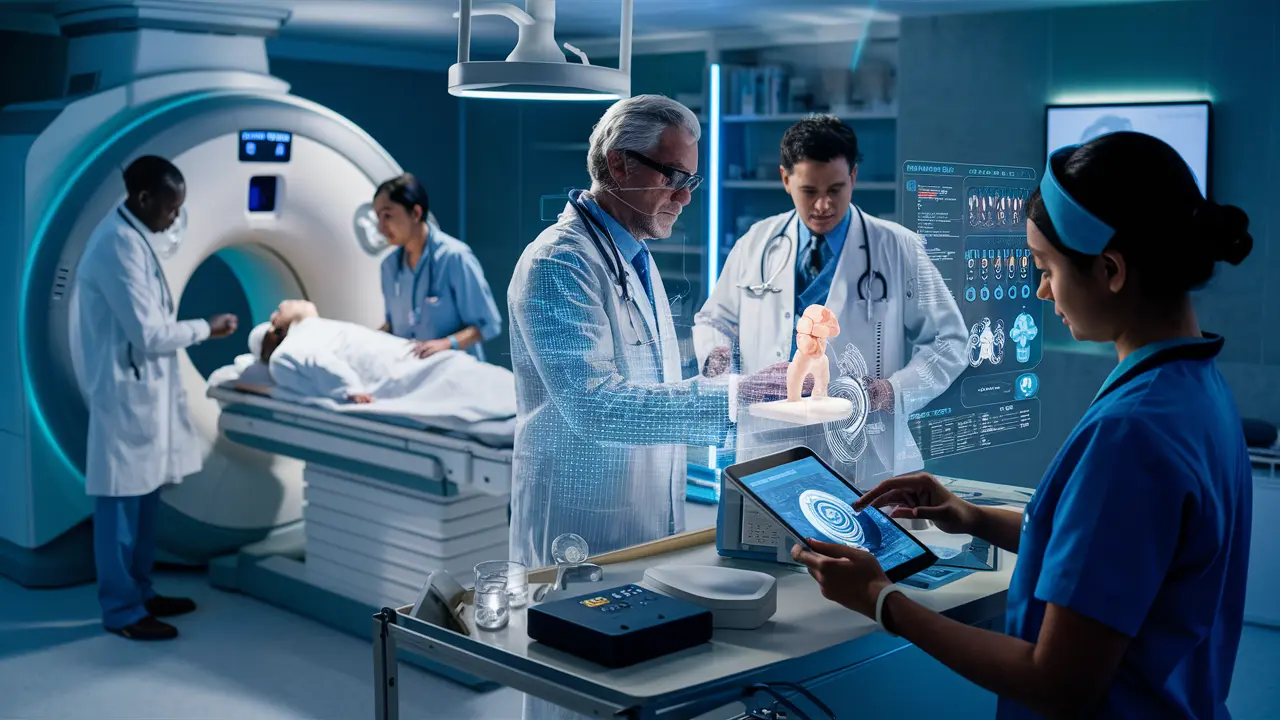Medical technology has greatly transformed the landscape of patient care in recent years, revolutionizing the way healthcare professionals diagnose and treat illnesses.
As technology continues to advance at a rapid pace, the field of medicine has not been left behind.
Medical technology has had a profound impact on patient care, revolutionizing the way healthcare is delivered and improving outcomes for patients around the world.
From diagnostic tools to treatment methods, the influence of medical technology on patient care cannot be overstated.
Advancements in medical technology
Advancements in medical technology are continuously propelling innovation in patient care.
New tools and techniques emerge constantly, enhancing treatment across various specialties.
From robotic surgery to precision medicine, these advancements are reshaping the landscape of healthcare delivery.
Telemedicine and artificial intelligence are revolutionizing how care is provided to patients.
Integrating digital health records and remote monitoring solutions streamlines healthcare, enabling more personalized and efficient patient care.
Improved accuracy and efficiency
The utilization of cutting-edge medical technology has revolutionized the accuracy and efficiency of diagnosis and treatment processes.
Advanced imaging technologies allow healthcare providers to detect and diagnose medical conditions with higher precision, leading to earlier and more targeted interventions.
The integration of artificial intelligence algorithms in medical software enables faster analysis of complex medical data, resulting in more efficient treatment planning.
These advancements not only enhance patient outcomes but also optimize resource utilization within healthcare settings.
Patient-centered care through technology
In today’s healthcare landscape, medical technology plays a crucial role in ensuring patient-centered care.
Personalized treatment plans tailored to individual needs are made possible through the integration of technologies such as telemedicine, remote patient monitoring, and wearable devices.
These innovations enable constant communication between patients and healthcare providers, facilitating proactive management of health conditions and promoting patient empowerment.
By leveraging these advancements, healthcare professionals can deliver more personalized and effective care, ultimately improving patient outcomes and enhancing overall satisfaction.
These tech-driven approaches are reshaping the patient experience and paving the way for a more patient-centric healthcare system.
Telemedicine and its impact
Telemedicine has emerged as a game-changer in healthcare delivery, significantly improving patient access to care.
With the convenience of virtual consultations, patients can connect with healthcare providers regardless of their geographic location, reducing barriers to seeking timely medical assistance.
Telemedicine enhances access for individuals in remote areas, those with mobility limitations, and those in need of specialist care.
By eliminating the need for in-person visits, this technology streamlines the healthcare process, making it more efficient and cost-effective.
Streamlined Workflows and Operational Efficiency
Medical technology has revolutionized the healthcare industry by introducing streamlined workflows and operational efficiency.
With advanced machines and devices, healthcare providers are able to diagnose and treat patients more quickly and accurately.
Electronic medical records have also played a significant role in improving operational efficiency by providing easy access to patient information and reducing paperwork.
Telemedicine has allowed healthcare professionals to reach patients in remote areas, cutting down on travel time and increasing accessibility to medical care.
Medical technology has greatly improved the efficiency of healthcare systems, resulting in better outcomes for patients.
Challenges and ethical considerations in medical technology
While medical technology has undoubtedly revolutionized patient care, it also presents unique challenges and ethical dilemmas.
Ensuring data security and patient privacy in telemedicine, for example, is crucial to maintain confidentiality and trust.
The digital divide may limit access to technology for certain populations, raising concerns about equity in healthcare delivery.
Ethical considerations surrounding artificial intelligence in diagnostics and treatment decision-making require careful navigation to uphold patient safety and autonomy.
To embrace innovative medical technologies, it is imperative to address these challenges thoughtfully and ethically to maximize the benefits for all patients.
Future of patient care medical technology
As we reflect on the current landscape of patient care influenced by medical technology, it is essential to look towards the future with optimism and caution.
The advancements in artificial intelligence, virtual reality, wearable devices, and personalized medicine hold immense promise for revolutionizing healthcare delivery.
With these advancements come a new set of challenges such as data privacy and security, algorithm biases, and regulatory oversight.
By staying vigilant and proactive in addressing these issues, we can ensure that medical technology continues to enhance patient care in a safe, ethical, and equitable manner.

